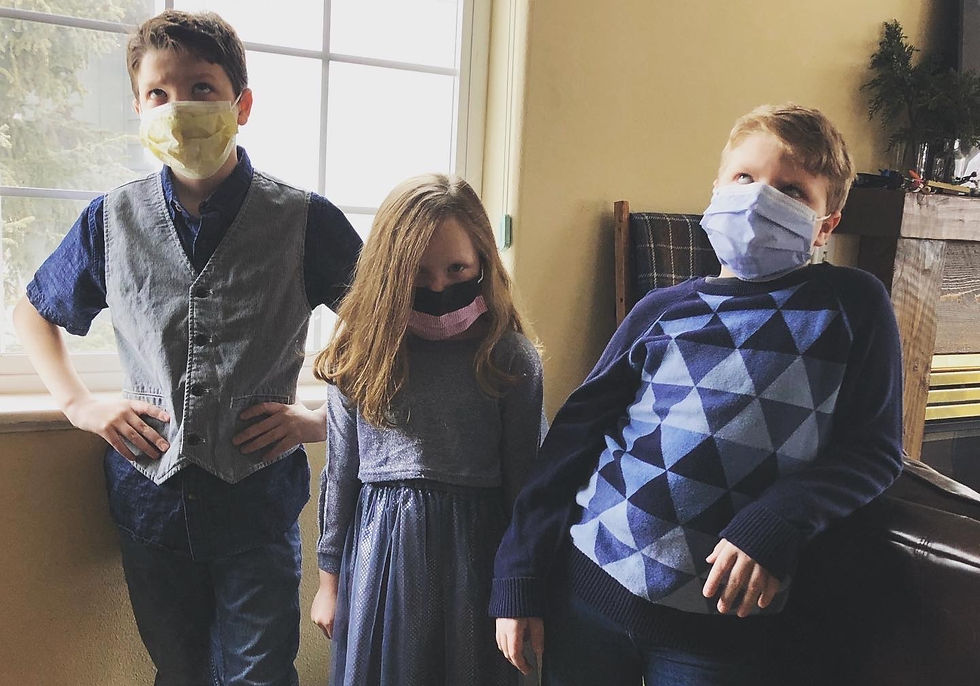It's been roughly a year and a half since I experienced a 7.1 earthquake. Doesn't seem possible that so much time has passed since then, but if I were asked the "where were you when…" question, I could easily pull up the memory. I imagine the ability to recall those harrowing moments will remain for a quite a while.
But I look up from my laptop and glance around my house and the effects of the earthquake aren't immediately clear (although it was amazing how many times we came across random detritus while cleaning even 9 months later :-). To be sure, there are a few cracks in our drywall that I have been waiting for an opportune time to repair (a.k.a., procrastinating :-), but you'd be hard pressed to find more damage than that in the home of many of us in the area.
And that is remarkable.
This event disrupted out lives--our kitchen cabinets emptied their contents and left smashed glass and pottery all over the floor, food fell from the pantry, two bookcases were broken to bits, light fixtures shattered, our TV fell and cracked, the garage door was broken, and books (so many books) were everywhere the eye could see. Add to all this the uncertainty and constant adrenaline hits that distressed us as the aftershocks rolled in week after week. Yet here we are with houses repaired, rooms cleaned, and only the occasional aftershock felt (did you feel the one on Sunday?).
Why am I saying all of this?
Well, it may be helpful to look at this pandemic through the lens of that earthquake. Are you experiencing fear and worry? You were back then, too. Are things out of control right now? Try living through a 7.1 earthquake! Will there be financial uncertainty? Yes, just as Liz and I had to repair and replace things after the quake. Do you miss a sense of normalcy? And so we did after the earthquake as every little aftershock sent our kids under their beds or under the dining room table for months. My point is not to compare the severity of the two traumatic events--the stakes are certainly higher in this pandemic as far as potential loss of life is concerned. But I do want to ask a question.
Did your worry/fear change the earthquake or its effects on your life?
Think about it. Did it change the safety of your loved ones (perhaps those you couldn't even reach on the phone)? Did it help sweep up the broken glass and mend damaged furniture? Or did it help your children overcome their apprehension at every aftershock? It didn't, because worrying can't make a situation better.
A year and a half later we are alive and, as frightening as the earthquake was, we have learned how to reconcile everyday life with the memory of those really terrible moments. So what lessons can we learn from that journey?
First, realize that worry and fear can't change the outcome of our situations. So, putting on my chaplain hat for a moment, Jesus himself recognized those concerns and anxieties that plagued us as humans. Things like worries about having enough food (all food, but I just heard that we might be running out of bacon?!), having sufficient clothing (how will COVID affect the textile industries!), and shelter (will we be able to pay our rent?). His response to these fears was, "can all your worries add a single moment to your life?" (Matt 6:27). In other words, meditating on our fears is simply wasting time (at best) and hurting us (at the worst.)

Second, remember those things that comforted you in the aftermath of the earthquake? When you finally made contact with your loved ones? When you spent time debriefing with fellow airmen and other dependents. Remember the urge to reach out and show care and concern? I distinctly remember the relief I felt when I was able to hear my wife's voice and learn that she and my children were safe. For weeks after the quake, I had friends and family pour out love, care, and concern for us from all over the United States and world. In their kindness, we gained courage. Doesn't Solomon (the indisputably wisest human to ever live) say "Good news from far away is like cold water to the thirsty" (Prov 25:25). In other words, make it a point to reach out to at least one person, one Wingman, one family member a day and you'll see your general sense of courage increase (and theirs will too!).
Third, the movie Frozen 2 stole a line from me that I've been saying for years (but I don't mind because I want my daughter to know it by heart): Do the next right thing. After the earthquake we all did this. We started the process of cleanup and repair of our houses, we contacted inspectors and bought replacement furniture. We did whatever was needed to fix the situation. So how can you do this now? How can you use this time to improve yourself, the situation, or your relationship with your family and spouse? Is it time to do that honey-do list you've been putting off, to read a marriage book (listen to a marriage podcast?), or pick up that musical instrument that you've been letting collect dust in the corner? Is it time to connect or reconnect with God and figure out that spiritual pillar that you've heard so much about from me and other chaplains in the USAF? For me, knowing that God is in control frees me up to help those around me. I would love to open up this spiritual discussion with you if you wanted.
As for me, I'm going to look at this pandemic as if it's just another fear inducing earthquake and take those lessons with me knowing that eventually, this too shall pass. I hope you will join me!
Comments